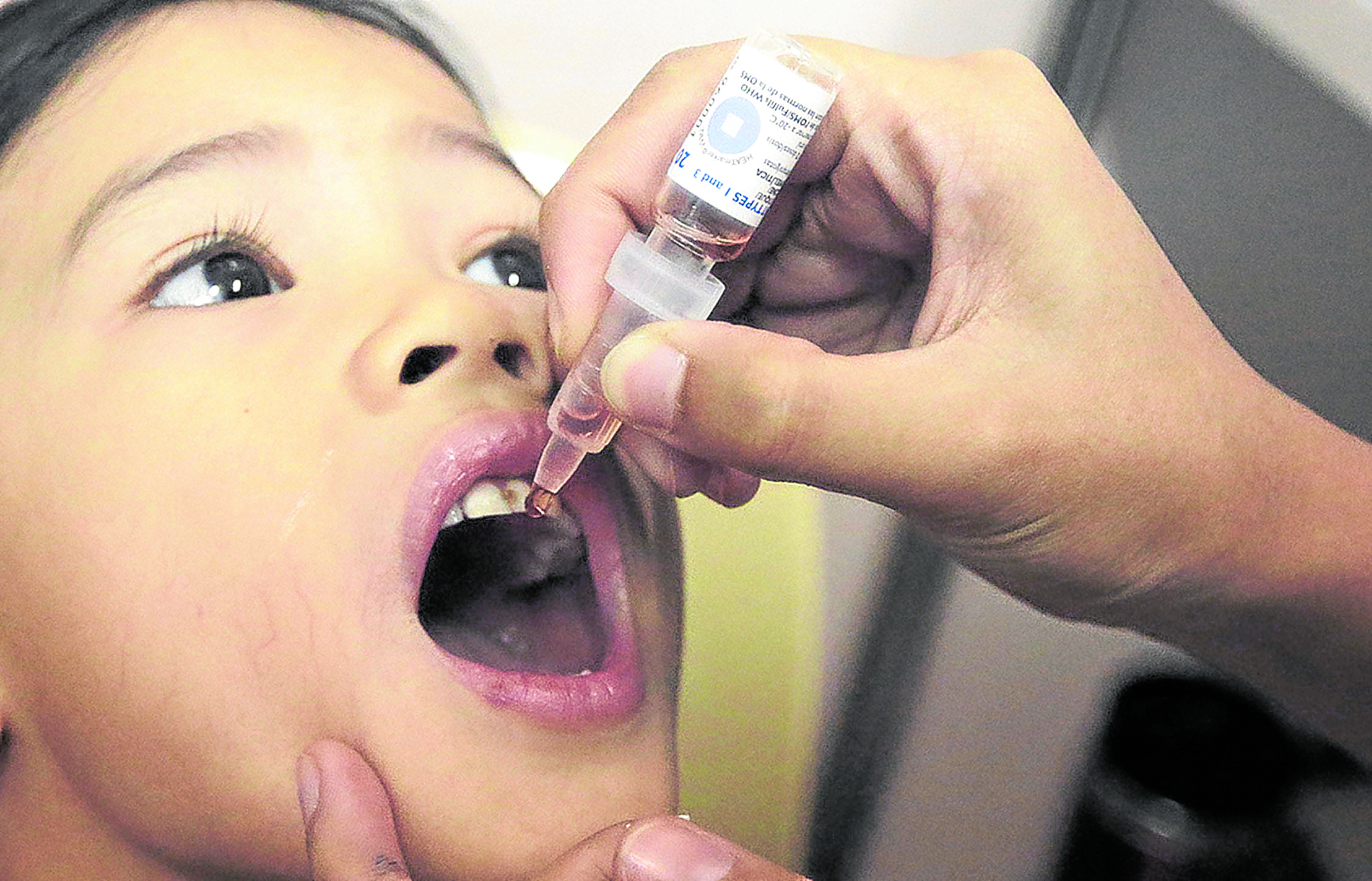‘Happy occasion’ amid COVID: PH declared polio-free anew

INQUIRER FILE PHOTO / GRIG C. MONTEGRANDE
MANILA, Philippines — The Philippines is once more polio-free as the World Health Organization (WHO) and the Department of Health (DOH) said on Friday that the outbreak of the debilitating disease that lasted nearly two years is officially over.
The disease first reemerged in the country in September 2019, 19 years after the Philippines has not had any polio case.
At an online briefing hosted by the DOH, the WHO representative to the Philippines, Dr. Rabindra Abeyasinghe, described the end of the outbreak which saw 17 confirmed cases as “a happy occasion” and “a major win for public health.”
“The virus has not been detected in a child or in the environment in the past 16 months and is a result of comprehensive outbreak response actions including intensified immunization and surveillance activities in affected areas of the country,” the WHO and Unicef also said in a joint statement.
Stalled by pandemic
Polio most commonly affects children and is transmitted through the fecal-oral route, or when an individual consumes food contaminated with human waste. Those who contract the disease are usually paralyzed and lose mobility, while some severe forms of the disease can cause death.
Article continues after this advertisementAbeyasinghe hailed the collaborative efforts of the country’s health-care sector, but called for continued surveillance to ensure that the disease does not reappear. “We need to maintain a strong surveillance system to ensure that the closure of this outbreak is sustained,” he said.
Article continues after this advertisementAt the same briefing, Health Undersecretary Maria Rosario Vergeire said the health department planned and implemented several rounds of immunizations to stop the outbreak. The program was “momentarily paused” when the COVID-19 pandemic hit, but was eventually resumed with added safety precautions.
“The coverage for the supplemental immunization against polio reached 87.3 percent of the targeted population. This level of coverage is an outstanding accomplishment for the country in combating polio,” she said, adding that the supplemental immunization campaign ended on March 31.
While there were 17 confirmed polio cases during the outbreak from September 2019 to present, the WHO said there were no fatalities recorded. The reemergence of the polio was noted in September 2019 to the present, when the DOH announced that a 3-year-old girl in Lanao del Sur was diagnosed with the disease, 19 years after the country was thought to have eradicated polio.
The next day, another case was confirmed in Laguna province, more than 770 kilometers from the first case found in Lanao del Sur.On Oct. 28, 2019, a 4-year old girl from Datu Piang in Maguindanao province who did not receive any dose of the oral polio vaccine was confirmed as the third case.
Last in Cabanatuan
In November 2019, the DOH confirmed four more cases, all found in Mindanao.
Health officials had cited several factors that made the environment ripe for the outbreak of polio, including low immunization coverage, severe lack of health-care workers and people’s poor understanding of health issues.
The DOH has since mounted supplemental vaccination programs to contain the polio outbreak but the number of children afflicted with the debilitating disease still continued to rise.
As of Feb. 15, 2020, the DOH recorded 17 cases of polio. The 17th case was a 1-year-old boy from Cabanatuan City, Nueva Ecija, who was brought to the hospital after suffering from fever and sudden onset of weakness on his left lower limb.
Nine of the 17 cases were from the Bangsamoro Autonomous Region in Muslim Mindanao. Soccsksargen accounted for five cases, while the National Capital Region (NCR) and Calabarzon each recorded one case. The 17th case was the first registered incident in Central Luzon.
House Deputy Speaker and Bagong Henerasyon Rep. Bernadette Herrera urged the government to ensure that “polio does not resurface again.”
In a statement, Herrera said the end of the outbreak does not mean that polio vaccinations and other preventive measures should stop. “The end of the polio outbreak in our country could very well be the collateral victory of the fight against COVID-19 and the enforcement of community quarantines. We all must make sure polio does not resurface again,” she said. —With reports from Julie Aurelio and Inquirer Research INQ